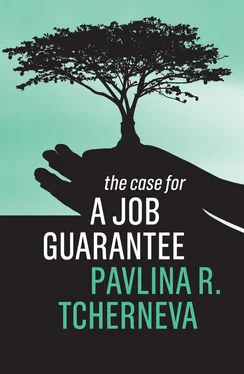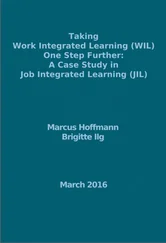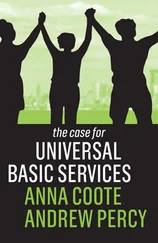ISBN-13: 978-1-5095-4211-6
A catalogue record for this book is available from the British Library.
The publisher has used its best endeavours to ensure that the URLs for external websites referred to in this book are correct and active at the time of going to press. However, the publisher has no responsibility for the websites and can make no guarantee that a site will remain live or that the content is or will remain appropriate.
Every effort has been made to trace all copyright holders, but if any have been overlooked the publisher will be pleased to include any necessary credits in any subsequent reprint or edition.
For further information on Polity, visit our website: politybooks.com
When I first began working on the Job Guarantee in the late 1990s, the consensus was that the US had reached full employment and the Goldilocks economy was here to stay. The argument made little sense but it convinced me that researching unemployment would be a solitary experience. Happily, I was wrong.
My journey began with the friendship and support of Mathew Forstater, Warren Mosler, and L. Randall Wray, and connected me to collaborators and friends, including William Mitchell, Stephanie Kelton, Fadhel Kaboub, Scott Fullwiler, among many others. The fellowship of the Job Guarantee grew. I met people from the US and abroad who enriched my work. They hailed from all corners of academia – from history and law, to public policy and the humanities. I worked with policy makers who were designing and implementing similar programs. Environmental and social justice activists, youth organizations, journalists, and engaged citizens embraced the proposal. They have all contributed to where we are today, namely a place where the Job Guarantee is once again part of the national conversation and policy agenda.
While writing this book, I benefited greatly from conversations with Angela Glover Blackwell, Raúl Carrillo, Grégor Chapelle, William “Sandy” Darity, Isabelle Ferreras, Trudy Goldberg, Rohan Gray, Darrick Hamilton, Philip Harvey, Sarah Treuhaft, and many others. My thanks to three anonymous referees and my editor George Owers, whose comments greatly improved this volume, and to my student Kirsten Ostbirk who helped with figures and references. Special thanks to John Henry for his generous feedback, often wrapped in some much needed humor. Needless to say, all opinions herein and any remaining errors are my own. Finally, my deepest gratitude goes to my family for their support, and especially to Douglas Johnson, who makes everything possible.
In the blink of an eye, millions lost their jobs. Like an inferno barreling across the globe, the coronavirus pandemic shutters one economy after another. Labor markets are cratering and the wave of layoffs has already turned into a tsunami. The Federal Reserve forecasts that US unemployment will surpass its 1930s Great Depression levels. And on the heels of this pandemic will come another – the suffering and devastation that result from mass unemployment.
This book was written before the hemorrhage in the labor market began. Yet it enumerates the many ways in which unemployment behaves like a silent epidemic – even while the economy is humming near full employment – from the way it spreads, to its virulent nature, to the enormous social costs it inflicts on people, communities, and the economy. In just a few short months, these costs would be immeasurable.
The pandemic has exposed as farcical many of the conversations from yesterday. Raising the minimum wage to $15/hour, we were told, would cost jobs (as if workers in poverty were ever good for the economy). Today, it’s obvious that the people on whose labor we vitally depend are the very same people who cannot secure living wages and basic job protections. Store clerks, dispatchers, warehouse workers, delivery drivers, and sanitation staff are now lauded as “essential workers,” but when the economy recovers, will the experts once again call them low-productivity employees whose jobs are in need of automation?
Yesterday, most presidential hopefuls shunned the idea that the government could provide universal healthcare. Today, we see not only that it can, but that it absolutely must, as millions lose their health insurance along with their jobs.
Yesterday, economists begrudgingly admitted that, despite historically low unemployment rates, the economy was nowhere near full employment and millions of people still wanted good jobs. Today, we face the daunting task of returning to those low rates after reaching double-digit unemployment. It took more than ten years to do so after the Great Financial Crisis of 2008. How long will it take now?
This book critiques the conventional stabilization approaches that produce prolonged and painful jobless recoveries. And if we have to face another one, would economists insist tomorrow that we have reached a permanently high “natural rate of unemployment?” Will they rekindle the old “structural unemployment” excuses for the abject failure of public policy to do what it can and what is right, namely to employ the unemployed?
We need a Job Guarantee now more than ever. The following pages present the case for its overwhelming benefits and a blueprint for its implementation. Its design is inspired precisely by the way policy is supposed to respond to pandemics, by prioritizing preparedness and prevention. Decades of austerity have led to the erosion of essential public sector programs, services, and institutional capacities, leaving us woefully unprepared to respond to this pandemic and the social crisis that will follow. The public was baited into accepting austerity with the myth that the federal government could run out of funding. And yet, almost overnight, the US government passed an unprecedented $2.2 trillion package to tackle the pandemic, with additional spending on the way according to bipartisan consensus. Many countries around the world are doing the same. Finding the money was never the problem. Finding the political will to rally behind key policies always was.
Tomorrow, when politicians ask “but how will the government pay for this program?,” the answer should always be “the way we paid for the pandemic.” If we can pay for all the interventions necessary to stem this crisis, we surely can afford to guarantee jobs, homes, healthcare, and a green economy. What we cannot afford is to emerge out of this moment with the same economic problems and inequalities that created so much suffering and devastation even before the current pandemic.
It is not because things are difficult that we do not dare, it is because we do not dare that they are difficult.
– Seneca
“There are no guarantees in life” is a familiar refrain, as is “if you really want something, you have to work for it.” But what if what you really want is paid work – a decent, well-paid job? And what if you cannot find it because, well, there are no guarantees in life?
This is the paradox the Job Guarantee proposal aims to solve. It is a public policy that provides an employment opportunity on standby to anyone looking for work, no matter their personal circumstances or the state of the economy. It converts the unemployment offices into employment offices to provide voluntary public service work opportunities in a wide range of care, environmental, rehabilitation, and small infrastructure projects. The Job Guarantee is a public option for jobs.
The guarantee part of the proposal is the promise, the assurance, that a basic job offer will always be available to those who seek it. The job part deals with another paradox, namely that while paid work in the modern world is life-defining and indispensable, it has, for many, become elusive, onerous, and punitive. The job component in the Job Guarantee aims to change all that by establishing a decent, living-wage job as a standard for all jobs in the economy, while paving the way for the transformation of public policy, the nature of the work experience, and the meaning of work itself.
Читать дальше












